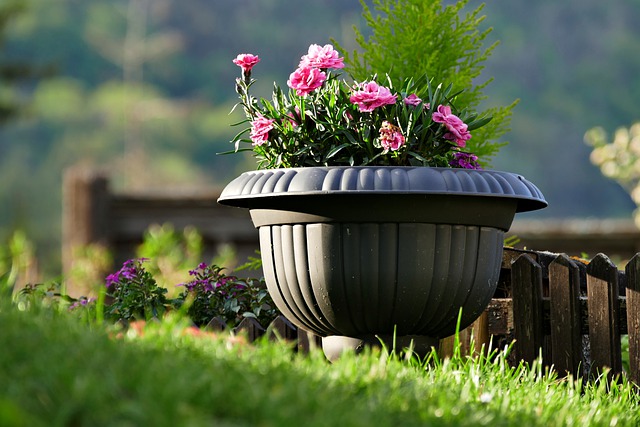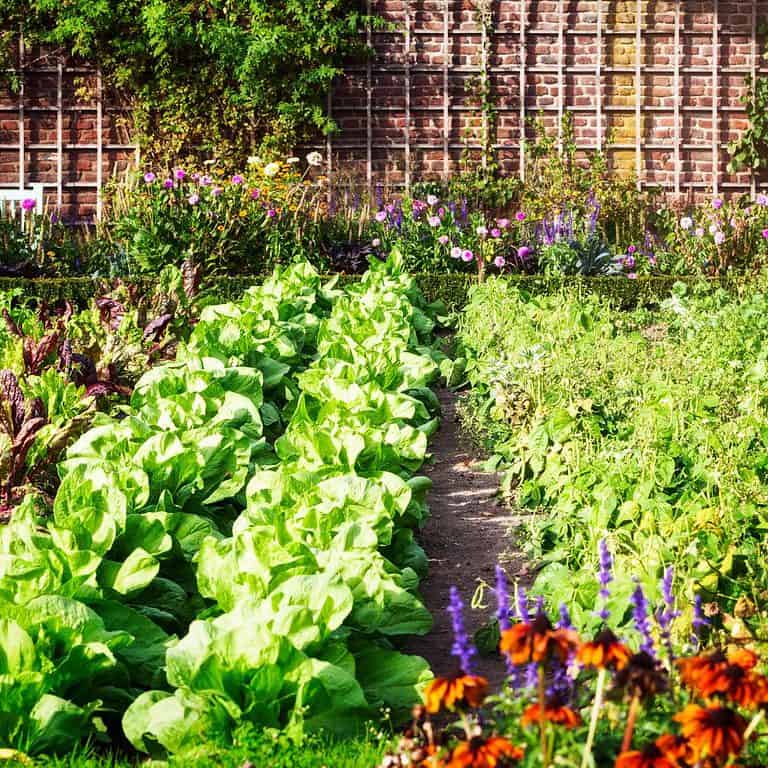Summer Garden Maintenance
Summer is the best time to garden, but garden maintenance can be an exhausting time. With the summer sun beating down on your plants and flowers, you might be wondering how to keep them thriving (and not wilting) during this crucial season.
If you’re looking for some tips on how to care for your garden this summer, look no further! In this article, I’ll share with you my tips for simple garden maintenance so that you will have a beautiful garden all season long.
Hopefully, with these simple tips, you’ll be able to enjoy a beautiful summer in your own backyard.

How to Care for Annual Plants in Your Sumer Garden
Annuals are plants that live for just one season. They will usually bloom all season long. The best way to keep your annuals looking fresh and blooming is by deadheading them regularly. Pinch or cut off the flower at the stem just below the spent flower. This will not only promote more flower growth, regular dead-heading your annual flowers will also stimulate new growth to the plant.
It’s also important to regularly weed around any plants so they don’t get choked out by weeds; weeding keeps an annual bed neat rather than giving it wild edges like other unmanaged beds might show. Mulch will help keep moisture levels in the soil high.
Fertilize your annuals during soil preparation, and check the soil during the season. Additional fertilizer may need to be applied a month or two after planting.

How to Maintain Perennials in the Summer
Perennial plants grow every spring and summer, die off every autumn and winter and return in the spring.
Pruning and deadheading is a great way to keep your flowers blooming on perennials. It encourages healthy full plants that will produce more flowers and generate constant new growth.
Pruning can be done by deadheading the spent flowers. as mentioned above. Another method is thinning, which improves the appearance of the plant. Thinning will shape and reduce the size of overgrown perennials by cutting unwanted stems starting from the outside of the plant.
Stake up tall perennials that might sway or break with windy weather which will help maintain their structural integrity for longer periods of time.
Fertilizing during the season helps promote healthy plants. and don’t forget to check for diseases, pests, (aphids, earwigs, slugs, and snails). Treat as needed to ensure that problems are addressed before major damage occurs.

Caring for Outdoor Container Plants
Container gardens are a simple and affordable way to beautify any space, but they need regular care. A container garden should be watered on a consistent basis- especially in extreme heat or dry conditions! Roots in potted plants are limited to the moisture in the pot and tend to dry out quickly.
When the weather is hot and dry, you may need to water your container plants every day. When watering potted plants, don’t just sprinkle the water on the leaves, make sure that the water is going into the soil in the pot so that it goes to the roots of the plant.
If you’re looking for an easy alternative that doesn’t involve watering the plants every single day, try planting some drought-tolerant varieties such as Rosemary, portulaca, coneflower, or zinnia.
Fertilize your favorite container plants with an all-purpose fertilizer at least once per month (more if possible) and use compost tea as often as needed.

How to Care for Fresh Herbs in Your Summer Garden
Herbs thrive in a sunny location. Plant them where they will receive 6 to 8 hours of sun each day, and water your herb plants when the soil feels dry; usually about one time per week.
Trim your herb plants regularly (once or every two weeks) to stimulate new growth. This can be done by pinching off the top of all new shoots which will encourage strong plant growth.
Fertilize herb plants with a good organic fertilizer prior to planting. If the plants start to loose their color during the growing season, apply a little more fertilizer.
Watch for diseases or pests in your herb plants, and treat accordingly.
Summertime is when most herb plants truly shine – enjoy them and take advantage of their bounty. Making sure herb plants stay happy and healthy isn’t just for cooking delicious dishes; they can also be used medicinally. So be sure take care of them. Most importantly, don’t forget to harvest your herbs and preserve them for the colder months.
Enjoy the Fruits of your Garden Maintenance
By the time summer arrives, most gardens are at their prime. While there are many tasks to do in the garden, be sure to set aside some time to sit back and enjoy your hard work.
This is also a good time to make notes in your garden journal, taking care to write about what plants did well and which ones didn’t, changes you might wish to make next year, and notes on plants or seeds to try out in the garden next year.
More Garden Tips
If you like this article, check out how to grow an indoor herb garden.

